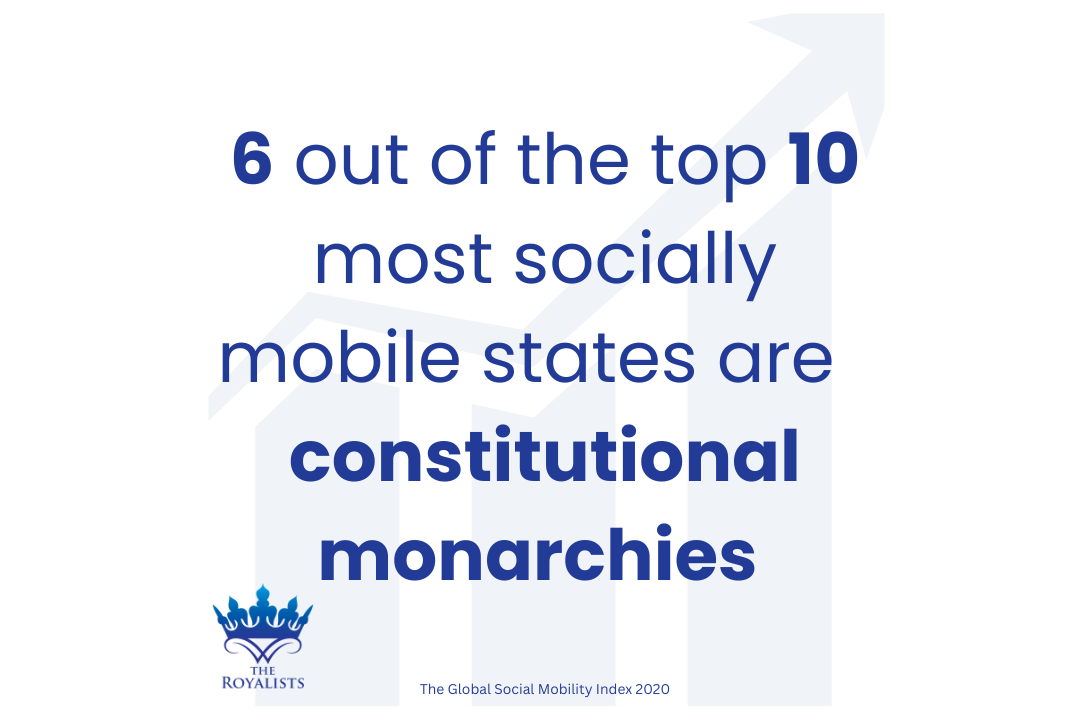Royalist Toolkit
Click on the images below to download educational material tailored for social media.
"How is the UK governed?" infographic.
"How is the King paid?" infographic.
"Over 1/2 of all democracies are constitutional monarchies" infographic.
"6 out of the top 10 most socially mobile states are constitutional monarchies" infographic.
"Over 1/2 of the least corrupt nations are constitutional monarchies" infographic.
"Monarchy boosts UK economy by £1.7 billion every year" infographic.






